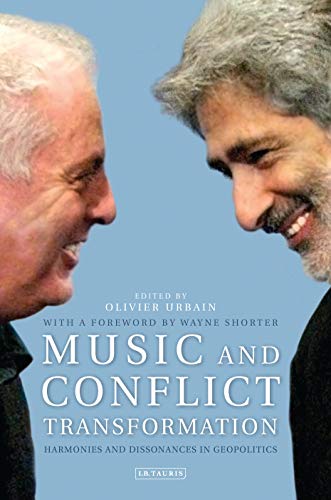How far can the relationship between music and politics be used to promote a more peaceful world? That is the central question which motivates this challenging new work. Combining theory from renowned academics such as Johan Galtung, Cindy Cohen and Karen Abi-Ezzi with compelling stories from musicians like Yair Dalal. The book also includes an exclusive interview with folk legend Pete Seeger. In each instance, practical and theoretical perspectives have been combined in order to explore music's role in conflict resolution. The book is divided into five sections. The first, ""Frameworks,"" reflects in-depth on the connections between music and peace, while the second, ""Music and Politics,"" discusses the actual impact of music on society. The third section, ""Healing and Education"" offers specific examples of the transformative power of music in prisons and other settings of conflict-resolution, while the fourth, ""Stories from the Field,"" tells true stories about music's impact in the Middle East and elsewhere. Finally, ""Reflections"" encourages the reader to consider a personal evaluation of the work with a view to further explorations of the capacity of music to promote peace-building.
Olivier Urbain is research fellow at the Toda Institute for Global Peace and Policy Research in Tokyo, former professor of Modern Languages and Peace Studies at Soka University, Japan, and founder and former director of the Transcend: Art and Peace Network (T: AP), the artistic branch of Johan Galtung's TRANSCEND peace and development network. An amateur blues pianist, he specializes in the links between music and peace. Publications include several articles on this topic and about the power of the arts for peace. He is currently the co-convenor of the Commission on Art and Peace (CAP) of the International Peace Research Association (IPRA) and member of the IPRA council. He is the editor of Music for Conflict Transformation, a volume published by I. B. Tauris in October 2007.
